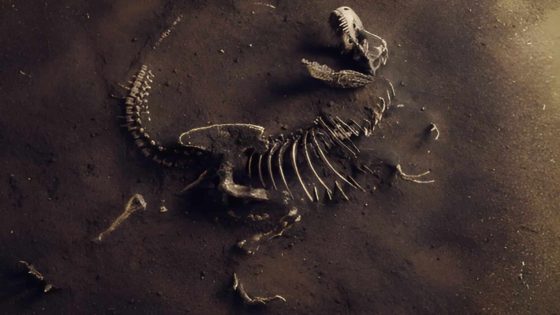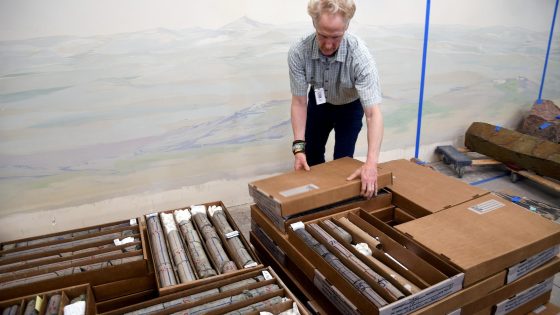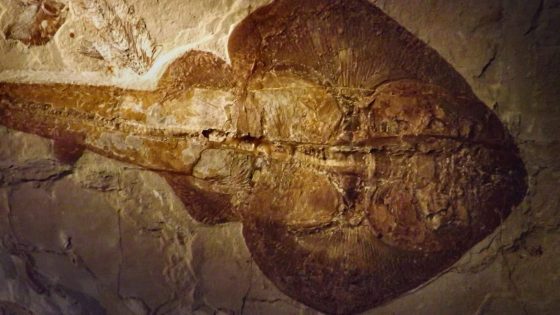Recent discoveries in paleontology challenge long-held beliefs about fossilization. For decades, scientists assumed that organic materials, like proteins, could not survive the fossilization process. However, a groundbreaking study published on 2025-06-25 15:15:00 reveals that collagen has been found in a 70-million-year-old Edmontosaurus fossil, reshaping our understanding of ancient life.
- Collagen discovered in 70-million-year-old fossil
- Challenges traditional fossilization assumptions
- Advanced spectrometry revealed organic molecules
- New insights into fossil preservation mechanisms
- Impacts understanding of ancient species biology
- Potential for new techniques in paleontology
This remarkable finding, led by researchers from the University of Liverpool, utilized advanced spectrometry techniques to analyze the fossil’s sacrum. Surprisingly, they identified not just amino acids but intact collagen proteins, contradicting the notion that such biomolecules degrade too quickly to survive.
This discovery raises critical questions about fossil preservation. How can organic molecules survive millions of years? The findings suggest that specific conditions may allow for the preservation of proteins, offering insights into the biology of ancient species. Consider these points:
- Collagen detection indicates that organic materials can endure in fossils.
- Advanced technology reveals molecular structures previously thought lost.
- This could lead to more accurate reconstructions of ancient life.
As researchers continue to explore these findings, the potential for new techniques in fossil analysis could unlock further secrets of our planet’s distant past. The future of paleontology looks promising, inviting deeper investigations into the mysteries of life that once roamed the Earth.

































